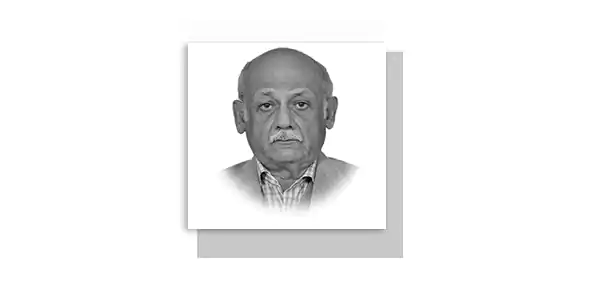ONE of the most enigmatic and mysterious figures in our national history is General Ataul Ghani Osmani. He is a national hero of Bangladesh and a very revered admired and praised officer credited with forming the Mukti Bahini, training the Bengali freedom fighters and then leading the Bengali forces alongside the Indians and finally achieving the military victory resulting in the independence of Bangladesh. Osmani was a regular officer of the Pakistan army and retired from service at the rank of Lieutenant Colonel. He was very bitter about his retirement and believed that he has been victimized because his career ended at the rank of a colonel he thought that he deserved a much higher rank. By 1970 he was leading a retired life in Dhaka but joined the Awami League and started taking an active part in the political campaign of the Awami League led by the charismatic Sheikh Mujib ur Rahman. After the army action of March 1971 in Dhaka he managed to slip across the border to India. He was picked up by the Indian intelligence and given the task of organizing and training the Mukti Bahini with the help, assistance and full support of the Indian army. He has the dubious distinction of being called a traitor on one side and a great national hero on the other side.
General M.A.G Osmani was born in an affluent and aristocratic family of Dayamir, a small village in Sylhet, East Bengal on 1st September 1918. He was a brilliant student and managed to pass his matriculation from Sylhet Government pilot school in 1934 in the first division and even won the Pretoria award for obtaining the highest marks in the subject of English Language. He then graduated from the Aligarh Muslim University in 1938 and then was successful in passing the prestigious India Civil Service examination. In 1939 when the Second World War broke out he opted to join the British Indian Army and took part in the Burma campaign fighting against the Japanese forces as an officer of the British Indian Army. In 1947 he opted for the Pakistan army and served with distinction until his retirement on 16th February 1967. This was the time of the rise of the Awami League and Sheikh Mujib Ur Rahman was the great hero of Bengali nationalism. Soon after retirement he jumped into politics and was elected an MNA on the ticket of the Awami League. During the civil war in East Pakistan he was appointed the supreme commander of the Mukti Bahini forces and eventually led them to victory and won the adulation and respect of the nation with the title of “Bangabir” or brave Bengali. After the independence of Bangladesh he was promoted to the rank of a four Star General on 7th April 1972. He served as the Minister for Air and Inland Water Transport in the first cabinet of Bangladesh headed by Sheikh Mujib Ur Rahman.
Osmani had a major role in organizing the Bangladesh armed forces and his contribution to the war of independence of Bangladesh. The international airport in his hometown, Sylhet, has been named Osmani Antorjatik Biman Bondor (Osmani International Airport) for him. MAG Osmani Medical College and the city’s state-run hospital also commemorate him. Osmani Memorial Auditorium in Dhaka and the Osmani Museum is in Sylhet. The place of Osmani in the national history of Bangladesh is assured as a great patriot, freedom fighter and soldier who contributed a lot to the freedom struggle of the Bengali nation. As the chief of the liberation forces Osmani is credited with putting together a guerilla force of young Bengali patriots called the Mukti Bahini and this is exactly the kind of job he had been trained first by the British Indian Army and then by the Pakistan Army. His retirement from the army turned him into a bitter and resentful individual because he thought that he had not been given the rank he deserved and retired because he was a Bengali. It was life which came alive in the heady days of March 1971, when he exchanged thoughts with Sheikh Mujibur Rahman on the probability of a Bengali force being raised to go into action against the Pakistan army should the occasion warrant it. By then a member-elect of the national assembly, as an Awami League nominee, elected on an all-Pakistan basis in December 1970, he had warned Mujib Ur Rahman that the Government. of the day in West Pakistan were not going to hand over power to him and he should be prepared for the worst. Osmani’s skills were on full display when, despite having been part of a conventional army, he went into the job of fashioning guerrilla resistance to the enemy. The segmentation of the battlefield into eleven sectors, with responsibility for the sectors handed over to commanders, was a feat for which he will always be remembered. Osmani worked in coordination with Prime Minister Tajuddin Ahmad, deferring to the wartime leader where important decision-making was concerned. He acquitted himself well.
Osmani died on 16th February 1984 in London but was buried in his home town of Sylhet.
—The writer is Professor of History, based in Islamabad.
Email: tariq.aqil@headstart.edu.pk










